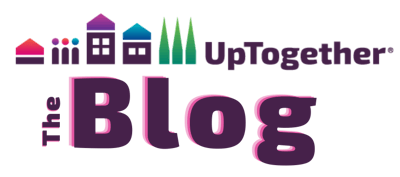The UpTogether Blog


UpTogether Endorses Federal Bill Increasing Access to Public Benefits
Carema returned home to Detroit from prison in 2019. She worked two jobs to support herself and her mother. She managed to still find time to participate in various charity drives, even organizing her own event, giving away $1,000 worth of food, clothes, hats and masks.
Though she was positively contributing to her community, Carema was denied Supplemental Nutrition Assistance Program (SNAP) benefits because, at the time, Michigan prohibited individuals with more than one drug felony conviction from receiving SNAP benefits.
“They didn’t give [SNAP] benefits to people with certain charges so it was a big challenge,” she said. “The money that I was using for food could have possibly went to some other area to better my life…even saving money toward my future.”
However, the challenges Carema faced are not unique. If you have been convicted of a drug-related felony, current federal law permanently denies you access to SNAP benefits, commonly known as food stamps, unless your state removes or modifies this existing lifetime ban.
Fortunately, in 2020, Michigan fully repealed its lifetime bans on individuals with drug felonies. South Carolina is the only state still fully enforcing the federal law, but many states still impose restrictions on those with felony drug convictions. Twenty states and Guam have strict requirements such as random, recurring drug tests and/or mandatory drug treatment programs, the costs of which recipients often have to pay for themselves. Some states will deny SNAP benefits if recipients fail more than one drug test or if they are convicted of another drug felony.
This is one of many policies that punish people and make it harder for them to get ahead. UpTogether believes in investing in people and their abilities, as we work to undo these kinds of harmful policies and systems.
“Often individuals with felony convictions are denied much-needed government assistance even after they have paid their debts to society and have a demonstrated willingness to be outstanding contributing citizens to society,” said UpTogether CEO Jesús Gerena. “These are cruel policies. No one should be denied basic needs.”
This past spring, Senators Cory Booker (D-NJ) and Raphael Warnock (D-GA), along with U.S. Representative Steve Cohen (D-TN-09), introduced the Re-Entry Support Through Opportunities for Resources and Essentials (RESTORE) Act, which would repeal the federal lifetime ban, prohibit states from imposing or enforcing any additional eligibility conditions on individuals based on them having a drug felony conviction, and allow individuals to apply for SNAP benefits 30 days before their release from incarceration
As Senator Booker notes in the press release announcing the introduction of the bill, “We know that when people receive SNAP assistance, they are better able to successfully reenter their communities after incarceration and not return to the criminal justice system.”
UpTogether joins more than 150 organizations in endorsing the RESTORE Act.
“How meaningful would it be for individuals like Carema if the federal government backed up its rhetoric about second chances and redemption with meaningful economic investments and opportunities like those Senator Booker, Senator Warnock, and Congressman Cohen have proposed and are championing through their RESTORE Act legislation,” said Gerena.
Though ineligible for SNAP benefits, Carema was able to participate in UpTogether’s direct cash assistance fund with the Center for Employment Opportunities. The assistance fund provided her with $5,937 over two years. The funds helped her pay for food, other basic necessities, and her sister’s funeral. “They really came through for me,” she said.
“Philanthropic organizations, such as UpTogether, fortunately provide an economic buoy for many formerly incarcerated and financially under-resourced individuals, but in the richest country on earth, this should not be the case. We should be a form of financial support in partnership with the government, but too often we are the exclusive means of outside financial support for these individuals,” said Gerena.

